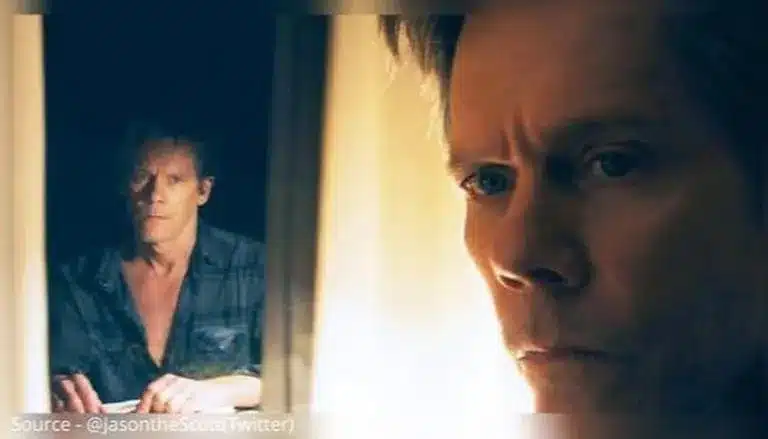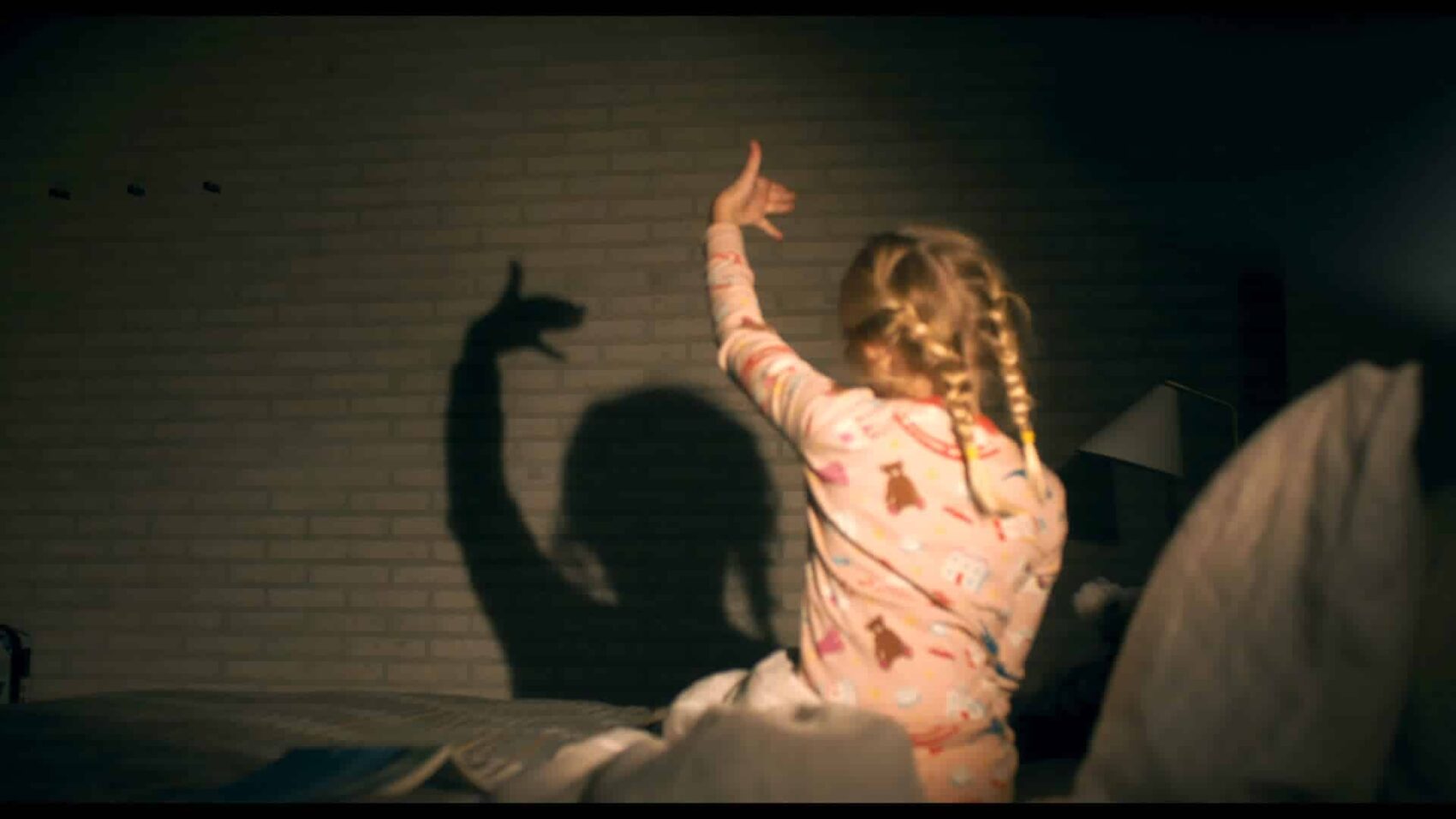You Should Have Left is a divisive film, to put it simply. People who adore it adore it, while those who vehemently despise it despise it. This is the reason the movie itself has an IMDB rating of 5. You won’t know for sure, however, unless you watch it for yourself, just like with any other hype-related topic. The movie is based on the book, and while it takes some concepts from the book, it also veers off in unexpected directions. The fundamental idea is the same, but several key themes, such as the protagonist’s name, are absent. Here is the storyline and resolution of You Should Have Leave described; there will be spoilers after this.
Oh, and if this post didn’t cover all of your questions, leave a comment here or send me a message on Facebook chat, and I’ll get back to you. Using the site’s search bar at the top, you can locate more film analysis.
You Should Have Left| A Summary of the Story

Intro
An elderly man named Theo Conroy is wed to Susanna, a young actress. Their daughter Ella is in their lives, and they appear to be content. Theo is visibly horrified when it is revealed that Susanna is a struggling actress who is being bullied into performing obscene sequences by directors. The group arranges a trip to Wales because one of the members has an upcoming performing commitment in London.
a house
Soon, the house where they are residing begins to exhibit some unsettling characteristics. In particular, after talking about it, they realise that neither of them made the reservation, and visibly, the home changes and the lights turn on by themselves. The mansion serves as the film’s primary backdrop. Even when it wasn’t, you’ll frequently get the idea that it was.
Envy
Theo is plagued by envy because Susana is much younger than him. This causes him to behave inappropriately, checking her phone frequently, possibly breaking into the set where she is an actress, etc. Another major element in the film is jealousy.
The Prior
We soon learn that Theo’s wife’s death in the bathtub is one of the reasons he is despised in his hometown. Even though it was never confirmed, some people think he might have been involved in her demise.
You Needed to Go| How did Theo act? Has he murdered his wife?

Theo doesn’t actually kill his ex-wife, but he does stand by and watch as she perishes in the bathtub. He could have simply yanked her out and called it quits. Yet, he decides to continue the unhealthy connection, enables enough mental wrath, and then finally consents to his wife’s death. Theo is a man of vengeance.
The Local People
A Welsh shopkeeper provides Theo a drafting triangle (set square) to measure the angles in the house and cautions him about the property. Also, he cautions Theo that Stetler is a dangerous character and that the house has repeatedly been destroyed and rebuilt. A different bystander asks Theo if he has yet to meet Stetler. Theo finds this perplexing, but he soon forgets about it when he learns that Susanna is having an affair with a young actor.
Should You Have Left| Did she commit fraud? Max is who?
Yeah, Susanna is having an extramarital affair with Max, a Mexican shooter who Susanna met. But it’s kind of funny how Theo catches her. Is that how she got away with it all this time? utilising two openly visible phones?
Something is wrong.
Theo starts noticing that the house’s interior dimensions are larger than its exterior after asking Susanna to depart for the evening. Moreover, the angles between a wall and the floor are never exactly perfect angles; this is geometrically impossible. Theo had already noticed a note written in his own handwriting in his book begging him to leave. The intricate maze of space and time that the home actually is quickly causes Theo and Ella to become lost.
When Theo locates Ella and makes an effort to leave the house, they notice an enigmatic figure standing by a window inside the building. They stroll back to the house after a frigid journey in one direction without ever making a turn. Theo understands they have little chance of getting out, and the cold pushes them back into the house for the night.
The House Wins Every Time

Finally, the enigmatic Stetler kidnaps Ella and informs Theo that his family will be held accountable for his transgressions. And if Theo agrees to “do what he must,” he will free Ella. Theo rejoins Ella after deciding to do so. He admits to Ella that he allowed his wife to drown in the morning. Theo stays behind and asks Susanna to go with Ella. He doesn’t try to depart with them because doing so would simply make them return like the night before. Susanna is unaware of the house’s history and thinks Theo is still angry with her for cheating on him.
Who wrote in Theo’s journal, and you ought to have gone?
Theo seems to be confined in both space and time by the mansion. We find out that Theo has been keeping an eye on his family the entire while while opening doors, writing cautionary messages, and watching them. Theo is the one who journals and is also the enigmatic figure seen following Theo and Ella at night as they leave.
You Should Have Left| An Explanation of the End
Theo allowed his ex-wife to die, and the house is purgatory where Theo is imprisoned for the sin he committed and which is now affecting his family as well, according to the You Should Have Leave movie’s ending. In the end, he deals with his sin and guilt, letting his family go while Theo is devoured by the mansion.
What’s the premise of You Should Have Left?
In the psychological thriller You Should Have Left, a guy experiences psychological pain as a result of a past sin. Additionally, it concerns him leading his entire family down this road before deciding to let them go.
It also has to do with whether the grass is greener on the opposite side. Theo was dissatisfied with his ex-wife and thought that he could finally find contentment if he could leave that marriage (no matter the cost). Eventually, he married a younger woman, had a child, and resettled his life, but he was still unable to find happiness. He was deteriorating from jealousy. All of this indicates that he might have been the issue rather than his late wife (at least not her alone).
Answers to Commonly Asked Questions

Who is Stetler, and should you have stayed?
Three possibilities make the most sense, however there is no conclusive solution. The first is that Stelter is a demonic being, possibly even the Devil. The same way they are aware that the house is haunted, the locals in the town know him by reputation. At the end, Stetler admits that he resembles Theo, emphasising that the Devil resides within each of us.
The second hypothesis is that Stelter is a tortured spirit who formerly resembled Theo. The third claim is that Theo is the one trapped in the time loop; however, unlike the film Triangle, this claim is only partially accurate. That is to say, Theo’s time-jumping does not cause all of the events in the movie.
The mother of Ella, who?
Ella does look to be Theo’s child from a previous marriage, however Theo and Susanna actually gave birth to Ella. Maybe the missing chemistry is the cause. It might help to clarify why many people were perplexed about Susanna’s identity as Ella’s mother.
What is the house, and you ought to have left?
The eerie abode is nothing more than hell. This is alluded to in a scenario where Theo discusses Heaven and admission criteria with his daughter. His arrogant demeanour gradually gives way to a far more uneasy one as the story goes on, revealing his awareness of his transgressions. He is unflinching while discussing death, yet he becomes uneasy when discussing being held accountable for his sins.
You can’t get out of the house because it will always find you, the shopkeeper claims. While it may be simple to flee a crime, it is impossible to hide from your conscience. This serves to support the idea that the house serves as purgatory.
The fact that Susanna and Ella are also with him in this purgatory is an interesting development that merits discussion. Everyone who has been in a relationship with someone who has a troubled history understands how quickly these issues spill over into the present. Even though they are deserving of assistance, persons who are suffering can occasionally drag those closest to them down the spiral. The most humanitarian course of action in situations where atonement is not feasible (which is also contested) is to simply release the person.
This is true regardless of how grand the property is or how it has distinctive architecture and fancy roofing. What happens in the house is more important than its shape. Yet, the house’s architecture received accolades from even some of the film’s toughest critics.
What message does the movie You Should Have Left convey?

It only takes repressed guilt and worry about potential punishment to turn a place into a purgatory. The main issue with this idea is that the individual who is the focus of this purgatory doesn’t suffer in isolation. Everyone close to them, including their partners and kids, suffers with them.
Even while forgiveness is crucial and atonement could be attainable, our loved ones occasionally stick with us no matter what. This sense of loyalty could even become damaging to oneself.
Even while they can’t spare themselves from pain, they can relieve their loved ones of this load.
In You Should Have Left, who plays the villain?
The main antagonist in You Should Have Left is Theo, despite the fact that the mansion appears to be haunted and that some strange presences can be detected throughout it. His predicament is far more complicated than it first seems. The audience is left with hope for his redemption because of his final brave deed, in which he aids Susana and Ella in fleeing the house. He also acknowledges that he deserves his penalty, which is a huge step in the right direction.
From a relativist vantage point, his crime is also extremely fascinating. Although he did not drown his ex-wife, he had the option to assist her but chose not to. For this precise reason, the novella’s or movie’s title may be even more sardonic. He should have left rather than wishing or permitting someone to drown (his marriage).
Yes, the house has a paranormal presence. Even worse, the shopkeeper claims that the house serves as a “portal” through which the Devil gathers unlucky souls. Theo is a major opponent even though his late wife’s ghost roams the area.
Since Susana does engage in adultery, this doesn’t truly absolve her of responsibility—but that is the subject of another novel or movie.
The movie should have won over the book.
the author
One of the biggest changes is that Theo tells the story in the book, giving the reader a whole different viewpoint on the narrative. Also, the main plot twist is disclosed much earlier. The novella’s narration takes the form of a diary and lasts no longer than five days. The main distinction is that in the novella, the narrator is anonymous. He is only referred to as the narrator there.
Home versus Cabin
While in the movie they rent a large, modernist home in the Welsh countryside, the main character and his family reside in a modest hut in the Austrian Alps in the book. Compared to the cabin in the book, the house in the movie You Should Have Left is significantly bigger and more intricate.
The Battle
Significantly, the novella does not have as much jealousy. Theo can’t get Susanna, a young, gorgeous actress who plays intense scenes, out of his brain. The novella does not mention this at all. The main character in the book is a screenwriter, and their biggest argument in the beginning is about the script with which he is getting so preoccupied that he is ignoring his wife.
Horror components
While the idea of a haunted house and the protagonist’s struggle to tell truth from fiction are discussed in both the novel and the film, the specifics of the supernatural components are different. While the main character in the book encounters weird characters and has bizarre visions, the supernatural components in the movie are more overt and overtly physical.
The movie you should have skipped is worth seeing, right?
There are differing views on this, but if you’re asking this question in the first place, the answer is that you should give it a shot. Although the execution might not have been flawless, both the novella and the movie deal with weighty subjects. The movie does a good job of bringing up the subjects of remorse, guilt, and envy.
What did you think of the story and resolution in the film You Should Have Left? Please provide your feedback below.
ALSO READ THIS: Fearless (2006) Film Explained
